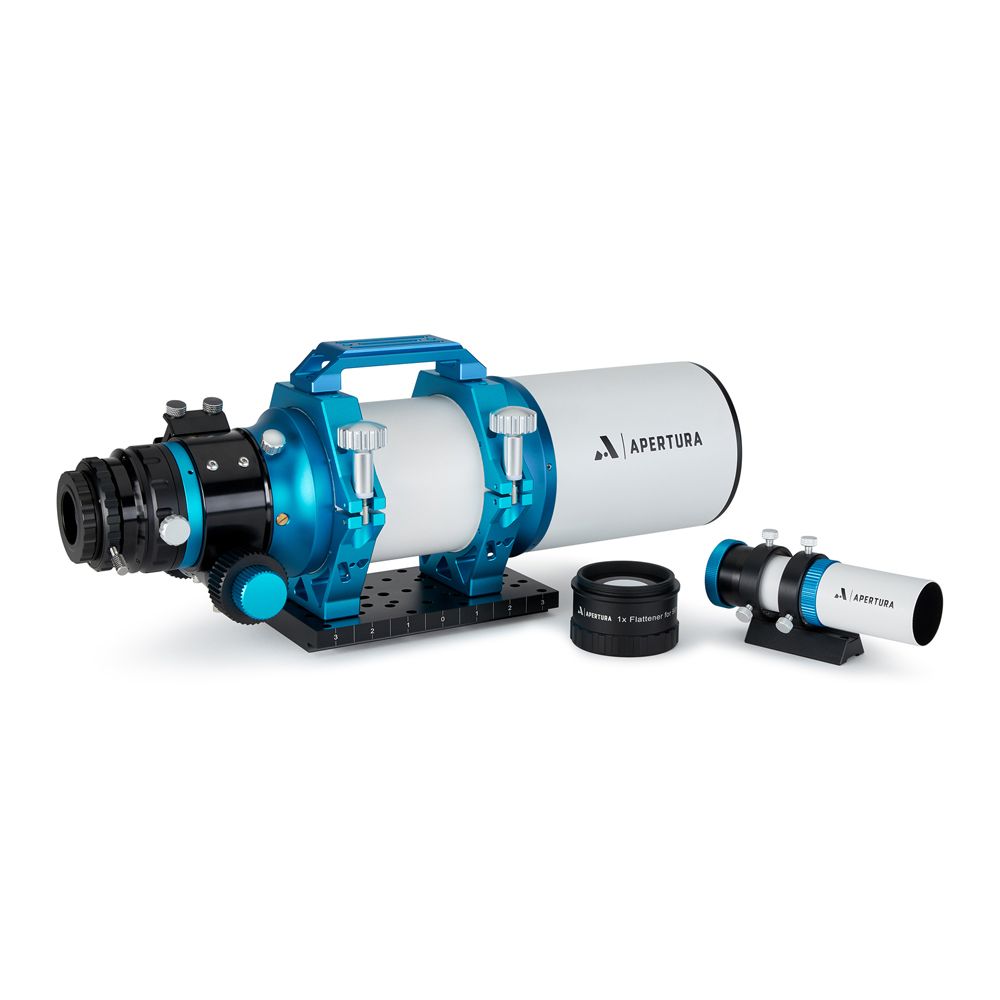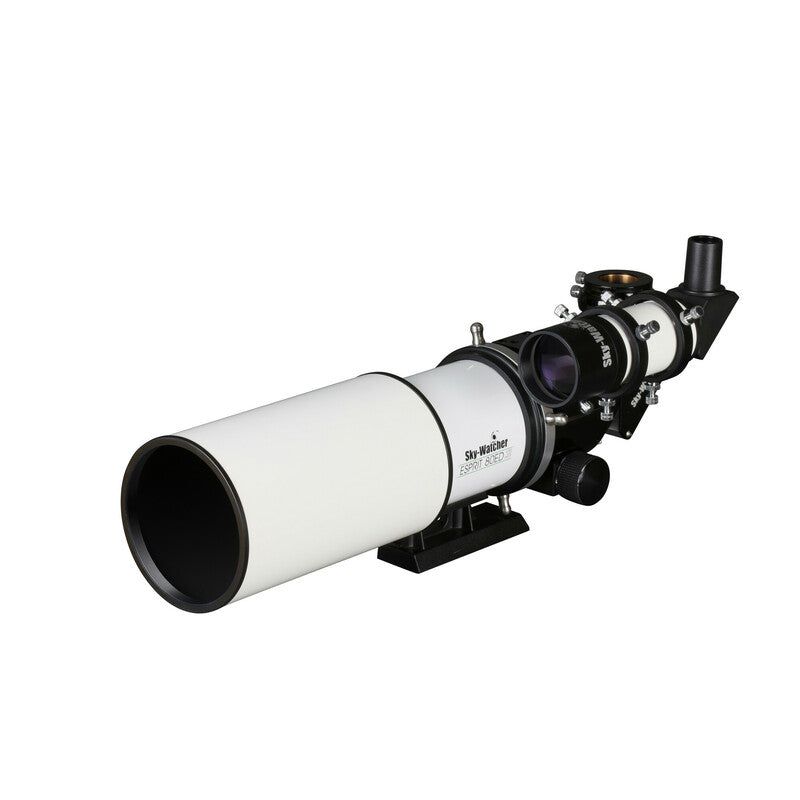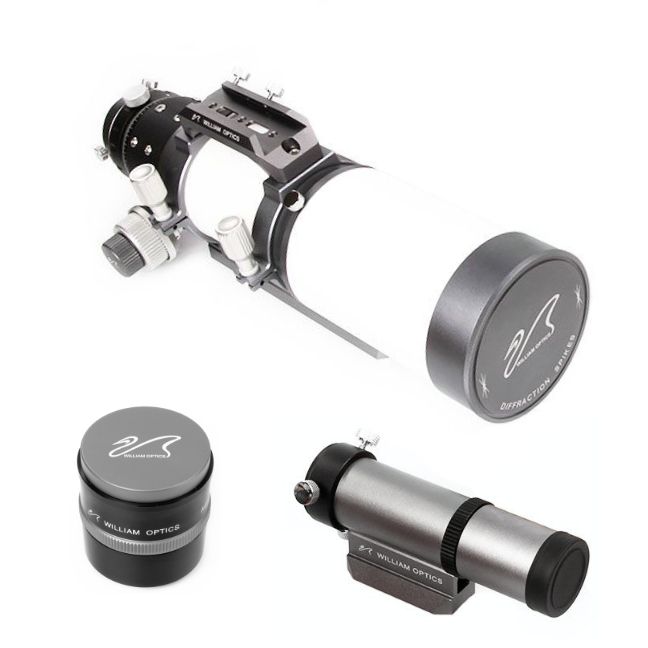
Travel telescopes are portable, lightweight, and small tools for quick assembly and simple movement. Appropriate for mobile stargazing, they usually feature tough casings, foldable tripods, and adaptable lenses for terrestrial and celestial viewing. Below is a quick review of some of the best telescopes, independent of mobility, intelligence, or best cost.
Highlighted Products
Featured Product 1
The William Optics Gran Turismo 81mm Refractor Package includes a sleek and elegant imaging setup, a 32mm UniGuide Guide Scope, an Adjustable 0.8x Focal Reducer & Field Flattener, a Bahtinov mask cover, dovetail plate, mounting rings, and a high-quality carrying bag.
Featured Product 2
Building on the excellence of compact refractors, the Tele Vue TV76 APO Refractor Telescope elevates viewing experiences with Nagler-designed optics and a multi-coated 2-element objective. This device presents stunning views of large objects, featuring a 3" actual apochromatic doublet lens, a 2" Focusmate dual-speed focuser, a retractable lens shade, and a thread-in metal dust cap.
Featured Product 3
Complementing the TV76’s versatility, the Apertura 72mm FPL-53 Doublet APO Refractor offers an equally portable yet powerful option for visual observations and astrophotography. It features Ohara ED glass and ensures clear celestial images, while its 72mm front objective lens and f/6 design provide a 430mm focal length for capturing larger, brighter objects.
More About This Category
Travel telescopes meet specific needs that, more significantly, stationary telescopes cannot. Convenience: Perfect for road-based scheduled observations or spontaneous stargazing, they are made for easy travel and fast assembly. From numerous angles, they're ideal for peaceful camping, mountaintops, or just your yard. They enable amateur astronomers to interact with the night sky without requiring large equipment. For those who travel often or are just beginning out in astronomy, they offer a suitable alternative that is generally less costly than high-end, large telescopes.
When choosing a travel telescope, several features are necessary for ensuring a satisfactory observing experience:
- Size and Weight: Travel telescopes are lightweight and compact, often featuring collapsible or detachable components to minimize space. Look for models with a weight of under 5 pounds for optimal portability.
- Optical Quality: Despite their small scale, many travel telescopes have excellent optics with superb image clarity and brightness. A few models include multi-coated lenses to improve light transmission and lower glare.
- Mount: Travel telescopes offer reasonable magnification and aperture sizes, typically 60mm to 100mm, while maintaining portability and performance. They often use stable, compact mounts like alt-azimuth or equatorial mounts for easy setup and adjustment.

Look for models with essential accessories like eyepieces, finderscopes, and carrying cases. Some travel telescopes also include smartphone adapters for astrophotography. Astrophotography and astronomy would find the Apertura 90 mm Apochromatic Refractor ideal because of its clear and robust optics. Its large 90 mm aperture enables clear photographing of low celestial objects. Although the 1x field flattener supports 2" filters (sold separately) and full-frame cameras, provided adapters give versatility for 1.25" and 2" eyepieces. With its premium components, this largest APO refractor family telescope ensures outstanding imaging and viewing performance.

A premium 71 mm apochromatic telescope meant for astrophotography is the William Optics GT71 Triplet APO Refractor. Its triplet FPL-53 glass lens is of excellent quality for color correction and sharpness. While its robust CNC-machined aluminum body is lightweight and attractive with red accents, the 2.5" rack & pinion focuser provides smooth focusing with dual-speed control. It features a Vixen and Arca Swiss dovetail plate and separately available color-matching 32 mm UniGuide scope for guiding.

Using a fast f/5 focal ratio and 400mm focal length, the Sky-Watcher Esprit 80mm ED APO Triplet Refractor provides clear, detailed images. Its apochromatic construction guarantees excellent color correction; multi-coated lenses increase light transmission. Along with accessories including a Canon camera adapter, field flattener, 2" diagonal, and finderscope, this premium telescope features a 2.7" dual-speed rack & pinion focuser for exact focusing.
Proper maintenance is essential to ensure your travel telescope remains in optimal condition. Follow these guidelines to keep your telescope functioning well:
- Cleaning Optics: Using a soft, lint-free cloth and lens cleaning solution, routinely wipe the lenses and mirrors. Before using any cleaning agent, dust should be removed with a blower brush; avoid touching the optics with your fingers.
- Checking Alignments: Periodically check and adjust the alignment of the optics and mount. Ensure that the telescope’s optics are correctly collimated to avoid blurry images.
- Storing: Store the telescope in a protective case that is cool and dry. Inspect its mount for wear or loose parts and ensure all accessories are securely attached.
Monitoring electrical components like automated mounts or motorized focusing mechanisms is vital when getting your travel telescope ready for usage. First, look at the batteries; if they exhibit wear or depletion, replace them to prevent disruptions during your observation session. To preserve your telescope from dust and moisture—which can compromise the optics and electronics—store it in a dry, protective cover over time. Look over the mount often for worn-out parts or loose screws. Tighten any loose components during the telescope's transportation to guarantee stability and best performance.


